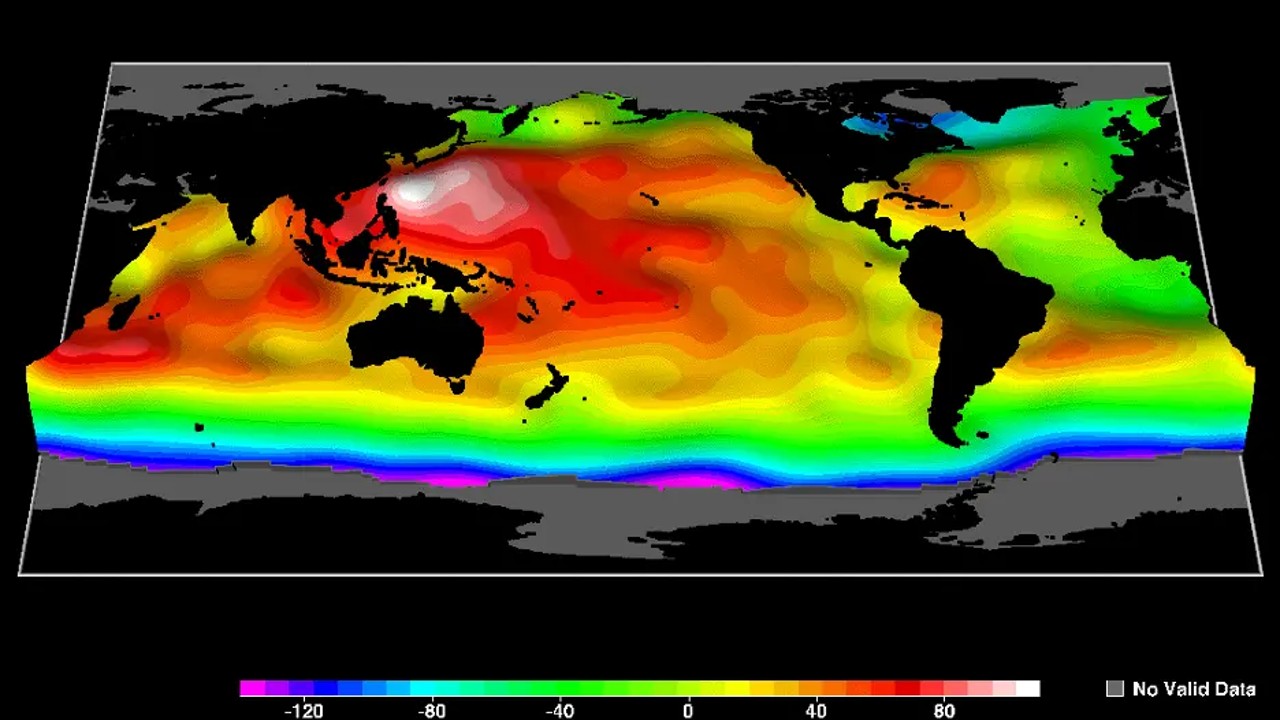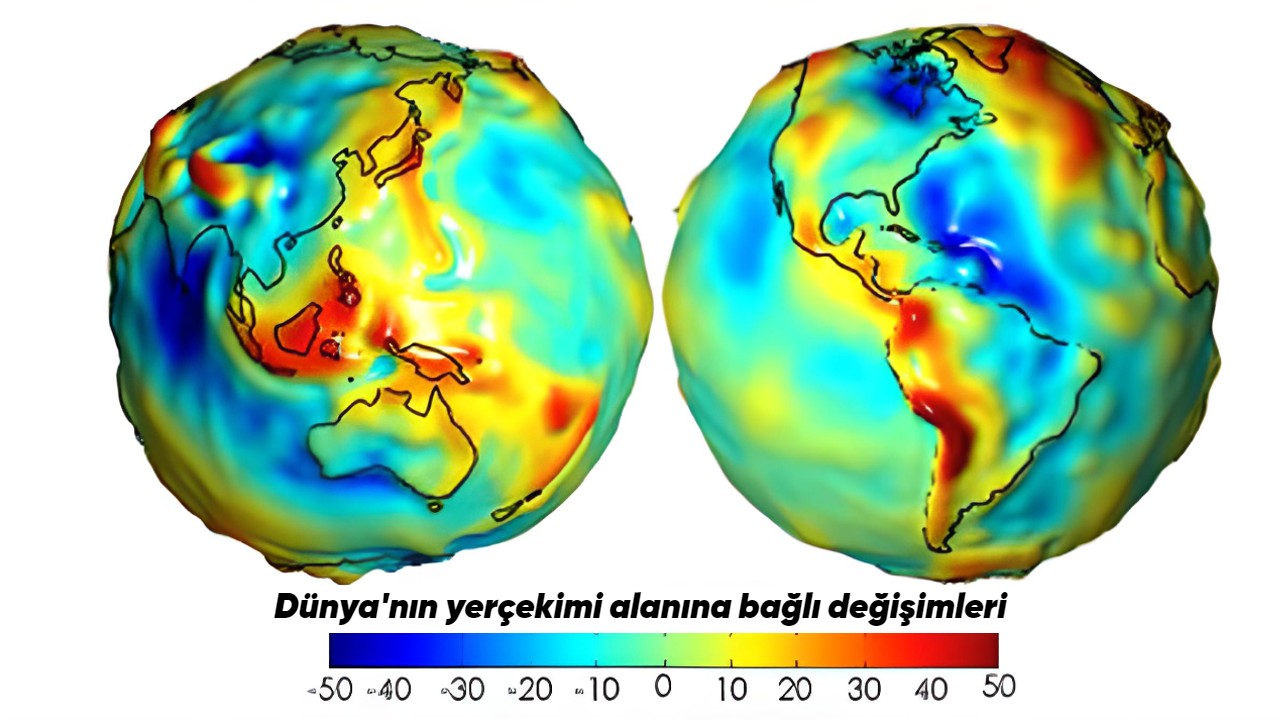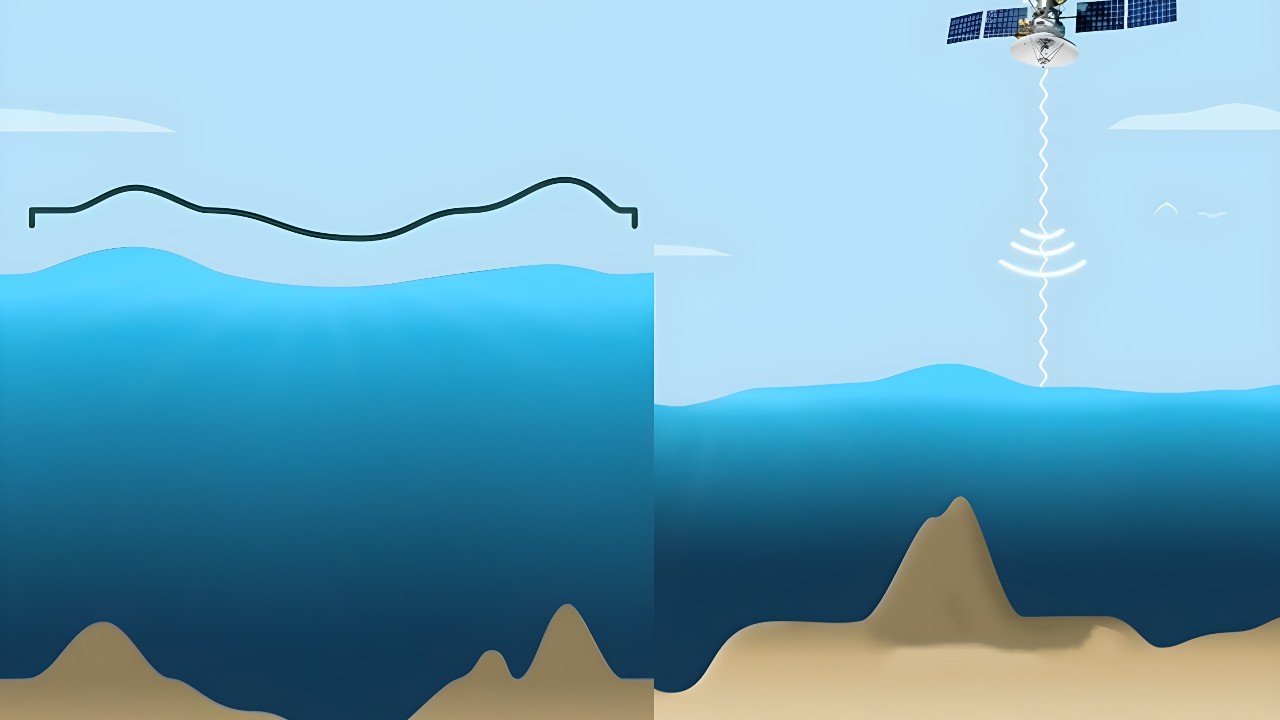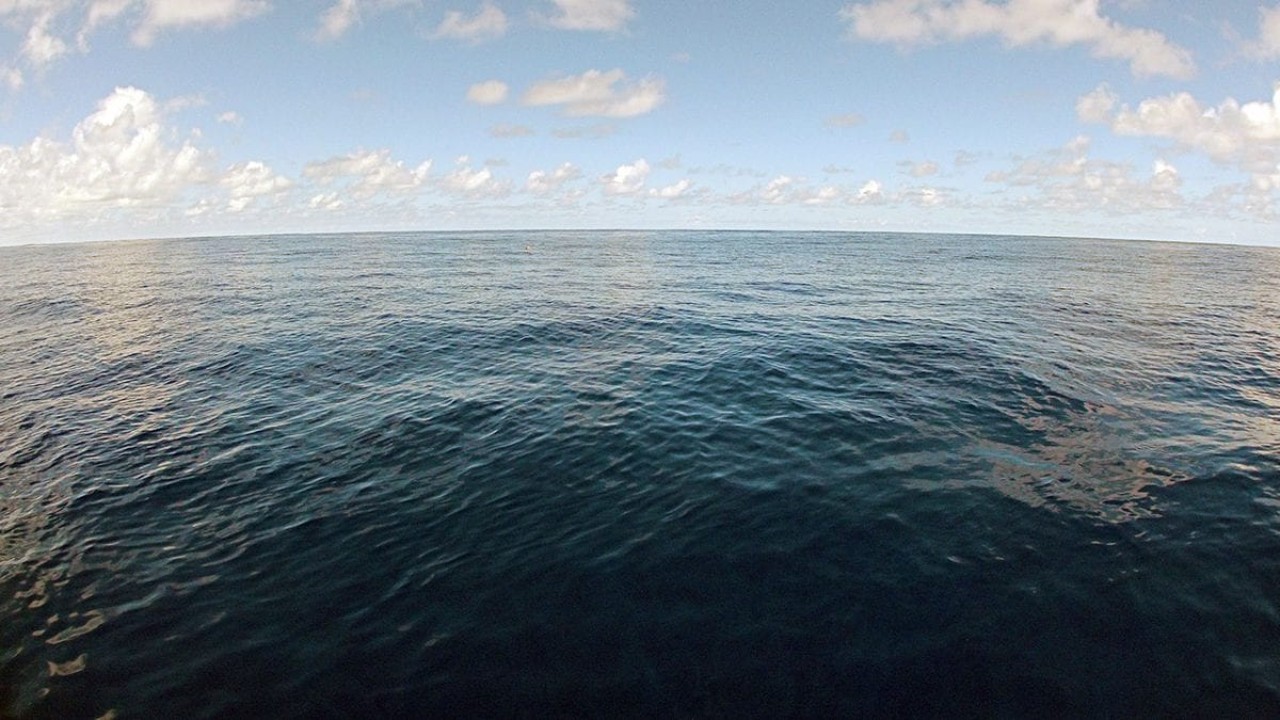We know that the climate crisis affects sea levels. But what we will talk about shortly is that there may be elevation differences in ocean waters, completely independent of this!
When you say the surface of the ocean is not flat from the waves or the curve of the Earth or something we are not talking about. The surface of the ocean is not flat per se!
Like Flat Earthers If there are straight ocean people out there, they might get a little annoyed. But if you are ready, we will explain why ocean waters are not flat.
First, let’s look at what global sea level rise means.
Expressing the average height of all ocean basins in the world the term “global sea level” You’ve probably heard it before.
There’s even a map like the one above that shows projections for sea level rise. “Global sea level rise” refers to the increase in the average global sea level trend.
The ocean is not flat as we thought.

Most of the time, when we look at a large body of water, we see it as flat, like water in a bathtub. It could probably be a single rise wave. But actually even if there are no waves Oceans are not flat like sheets.
On the contrary, there are hills, just like on land. The only difference from those on land is that they are smaller, with a maximum length of 2 meters. In the image above, you can see these height differences on color scale we can see.
The biggest factor shaping the ocean is gravity.

Changes in Earth’s gravity make it erratic and ever-changing It takes a shape. As mass is redistributed across the Earth’s surface (e.g. melting glaciers), the gravitational field also changes, affecting the height of the ocean and sea surface.

For example, if there is a tiny hole at the bottom of the ocean, there is also a hole above this water. a tiny slope can create. Likewise, if there is a small hill at the bottom, this can also affect the shape of the water surface.
So, does having these elevations change anything?

These small rises and depressions on the ocean surface; the temperature of the water, the amount of salt it contains, It can affect many factors, such as the pressure of the atmosphere on the ocean surface and ocean currents.
Other content about oceans that may interest you:
RELATED NEWS
Why We Could Only Explore 5% of the Oceans, When We Could Even Go to Mars?
RELATED NEWS
Why don’t we desalinate and use the ocean waters that cover 70% of the world?
RELATED NEWS
What would happen if all the oceans, seas and lakes in the world were turned into drinking water? Be Sure, You Never Wanted It!
RELATED NEWS
